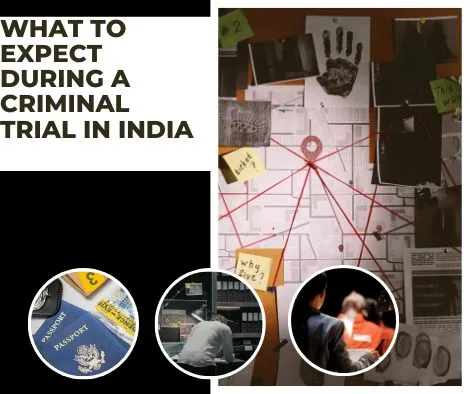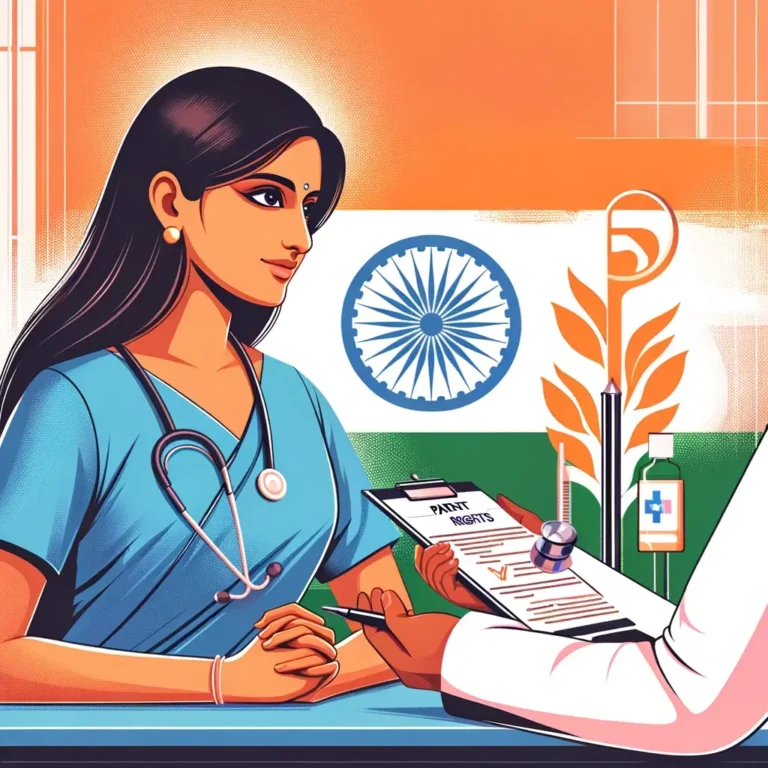In this article we will discuss Reproductive Rights And Laws In India. As India, a nation of over 1.3 billion people, has a complex and evolving landscape when it comes to reproductive rights and laws. Understanding these laws is crucial for ensuring the health, autonomy, and well-being of its citizens. This article aims to demystify the legal framework governing reproductive rights in India, using simple language and a compassionate approach.
What Are Reproductive Rights?
Reproductive rights encompass the legal freedoms and protections related to reproduction and reproductive health. These rights allow individuals to make informed and autonomous decisions about their reproductive lives, free from discrimination, coercion, and violence.
Reproductive Rights and Laws in India: A Comprehensive Guide
Key Components of Reproductive Rights
- Access to comprehensive reproductive health services: This includes contraception, prenatal, delivery, and postnatal care, as well as safe abortion services.
- Right to information and education: Individuals should have access to accurate information about reproductive health and rights.
- Protection and freedom from discrimination: Ensuring that everyone, regardless of gender, age, marital status, or economic background, has equal access to reproductive health services.
Overview of Reproductive Laws in India
India’s approach to reproductive rights is framed by several key pieces of legislation and policies that have evolved over the years. Let’s explore some of the cornerstone laws and regulations.
The Medical Termination of Pregnancy Act, 1971
This landmark act was one of the first to legalize abortion in India, albeit under specific conditions. It allows for abortion up to 20 weeks of pregnancy under certain circumstances, such as risk to the life or health of the mother or grave fetal abnormalities. Recent amendments aim to extend this period under special circumstances, reflecting a more nuanced understanding of reproductive rights.
The Pre-Conception and Pre-Natal Diagnostic Techniques (PCPNDT) Act, 1994
Introduced to combat gender-based abortions and the misuse of prenatal diagnostic technology, the PCPNDT Act prohibits sex selection before or after conception. It underscores India’s commitment to gender equality and the protection of female children.
The Protection of Children from Sexual Offences (POCSO) Act, 2012
Although not exclusively about reproductive rights, the POCSO Act is crucial for protecting minors from abuse and exploitation. It ensures that children’s rights are safeguarded, including in contexts that may affect their reproductive health.
Family Planning and Contraception
India was the first country in the world to launch a state-sponsored family planning program in 1952. Today, the government provides access to various contraceptive methods free of charge or at subsidized rates. This is part of India’s broader commitment to ensuring the reproductive health and rights of its citizens.
Challenges and Progress
Despite these laws, challenges remain in ensuring universal access to reproductive rights in India. These include disparities in healthcare access, societal stigma surrounding abortion and contraception, and gaps in education about reproductive health.
However, progress is being made. Recent legal reforms and social initiatives aim to strengthen reproductive rights and access to healthcare. Civil society organizations and the government are working together to improve awareness and remove barriers to access.
The Way Forward
Empowering individuals with knowledge and access to reproductive health services is key to advancing reproductive rights in India. Ongoing efforts to amend laws, improve healthcare infrastructure, and combat societal stigma are vital steps in this direction.
The Role of Education
Educating the populace about reproductive health and rights is fundamental. Schools, community groups, and healthcare providers play a crucial role in spreading awareness and dispelling myths surrounding reproductive health.
Strengthening Healthcare Access
Enhancing the availability and quality of reproductive health services across India, especially in rural and underserved areas, is essential for ensuring that all citizens can exercise their reproductive rights.
Conclusion
Reproductive rights are a vital component of human rights and societal well-being in India. Through continued legal reform, education, and advocacy, India can ensure that all its citizens have the freedom and resources to make informed decisions about their reproductive lives. It’s a journey of progress, understanding, and compassion towards a future where everyone’s reproductive rights are respected and protected.
FAQs: Reproductive Rights And Laws In India
1. What are reproductive rights?
Reproductive rights are legal rights and freedoms relating to reproduction and reproductive health, allowing individuals to make informed decisions about their reproductive lives.
2. Is abortion legal in India?
Yes, abortion is legal in India under the Medical Termination of Pregnancy Act, 1971, up to 20 weeks of pregnancy, with certain conditions for extending up to 24 weeks under specific circumstances.
3. Can unmarried women access abortion in India?
Yes, unmarried women can access abortion services in India, provided they meet the legal requirements outlined in the Medical Termination of Pregnancy Act.
4. What is the PCPNDT Act?
The Pre-Conception and Pre-Natal Diagnostic Techniques (PCPNDT) Act, 1994, aims to prevent sex-selective abortions and regulate the use of prenatal diagnostic techniques.
5. Are contraceptives available for free in India?
Yes, the Indian government provides various contraceptive methods free of charge or at subsidized rates through public healthcare facilities.
6. Can minors access reproductive health services?
Minors can access certain reproductive health services, but there are restrictions and requirements for consent, especially for invasive procedures.
7. What is the legal age for marriage in India?
The legal age for marriage in India is 21 years for men and 18 years for women.
8. Are LGBTQ+ individuals entitled to reproductive rights in India?
Yes, LGBTQ+ individuals are entitled to reproductive rights, but they may face challenges in accessing certain services, such as assisted reproductive technologies.
9. What is the significance of the POCSO Act in reproductive rights?
The Protection of Children from Sexual Offences (POCSO) Act, 2012, protects minors from sexual abuse, impacting their reproductive health and rights.
10. Can a woman seek an abortion without her partner’s consent?
Yes, a woman can seek an abortion without her partner’s consent, as per the Medical Termination of Pregnancy Act.
11. Is sex education mandatory in Indian schools?
Sex education is not mandatory in all Indian schools, and its implementation varies across states due to cultural and social sensitivities.
12. What laws protect women from domestic violence and its impact on reproductive health?
The Protection of Women from Domestic Violence Act, 2005, provides protection to women from domestic violence, including its impact on reproductive health.
13. How can individuals report violations of reproductive rights?
Violations of reproductive rights can be reported to the nearest police station, women’s commissions, or non-governmental organizations specializing in legal aid.
14. Are there any government schemes to support maternal health?
Yes, schemes like the Janani Suraksha Yojana (JSY) aim to enhance maternal health by providing financial assistance to pregnant women.
15. Is female genital mutilation (FGM) legal in India?
FGM is not explicitly mentioned in Indian law but can be considered illegal under existing laws against child abuse and assault.
16. Can employers deny maternity leave?
No, under the Maternity Benefit Act, 1961, employers cannot deny eligible women maternity leave.
17. Are there any protections against forced sterilization?
Forced sterilization is illegal in India, and consent must be obtained before performing any sterilization procedure.
18. Can sex workers access reproductive health services?
Yes, sex workers have the right to access reproductive health services, although they may face societal barriers.
19. Is surrogacy legal in India?
Surrogacy is legal but regulated in India, with the Surrogacy (Regulation) Act, 2021, setting out specific conditions and eligibility criteria.
20. How does India address infertility treatments?
Infertility treatments, including IVF, are available in India, regulated under guidelines issued by the Indian Council of Medical Research (ICMR).
21. Are there any laws regarding the use of contraceptives?
There are no specific laws regulating the use of contraceptives, but government policies support and promote their use.
22. Can individuals access post-abortion care?
Yes, individuals can access post-abortion care as part of reproductive health services, ensuring safety and recovery.
23. What rights do transgender individuals have regarding reproductive health?
Transgender individuals have the right to access reproductive health services, though they may encounter specific challenges.
24. How is reproductive coercion addressed in India?
Reproductive coercion is addressed through laws against domestic violence and sexual abuse, protecting individuals’ reproductive autonomy.
25. Are reproductive rights included in human rights frameworks in India?
Yes, reproductive rights are considered part of human rights in India, integral to ensuring individuals’ health and well-being.
26. How does the government promote family planning?
The government promotes family planning through awareness campaigns, free or subsidized contraceptives, and healthcare services.
27. What is the role of NGOs in reproductive rights in India?
NGOs play a crucial role in advocacy, education, and providing services related to reproductive rights and health.
28. Can a person be forced to undergo an HIV test before marriage?
No, forcing someone to undergo an HIV test without consent is illegal and violates personal rights.
29. How are reproductive rights of disabled individuals addressed?
Disabled individuals have the same reproductive rights, with efforts to ensure accessibility and sensitivity in healthcare services.
30. What is the future of reproductive rights in India?
The future of reproductive rights in India looks towards greater inclusivity, awareness, and improved access to comprehensive reproductive health services.
Sources :-
- The Medical Termination of Pregnancy Act, 1971
- The Pre-Conception and Pre-Natal Diagnostic Techniques (PCPNDT) Act, 1994
- The Protection of Children from Sexual Offences (POCSO) Act, 2012
















